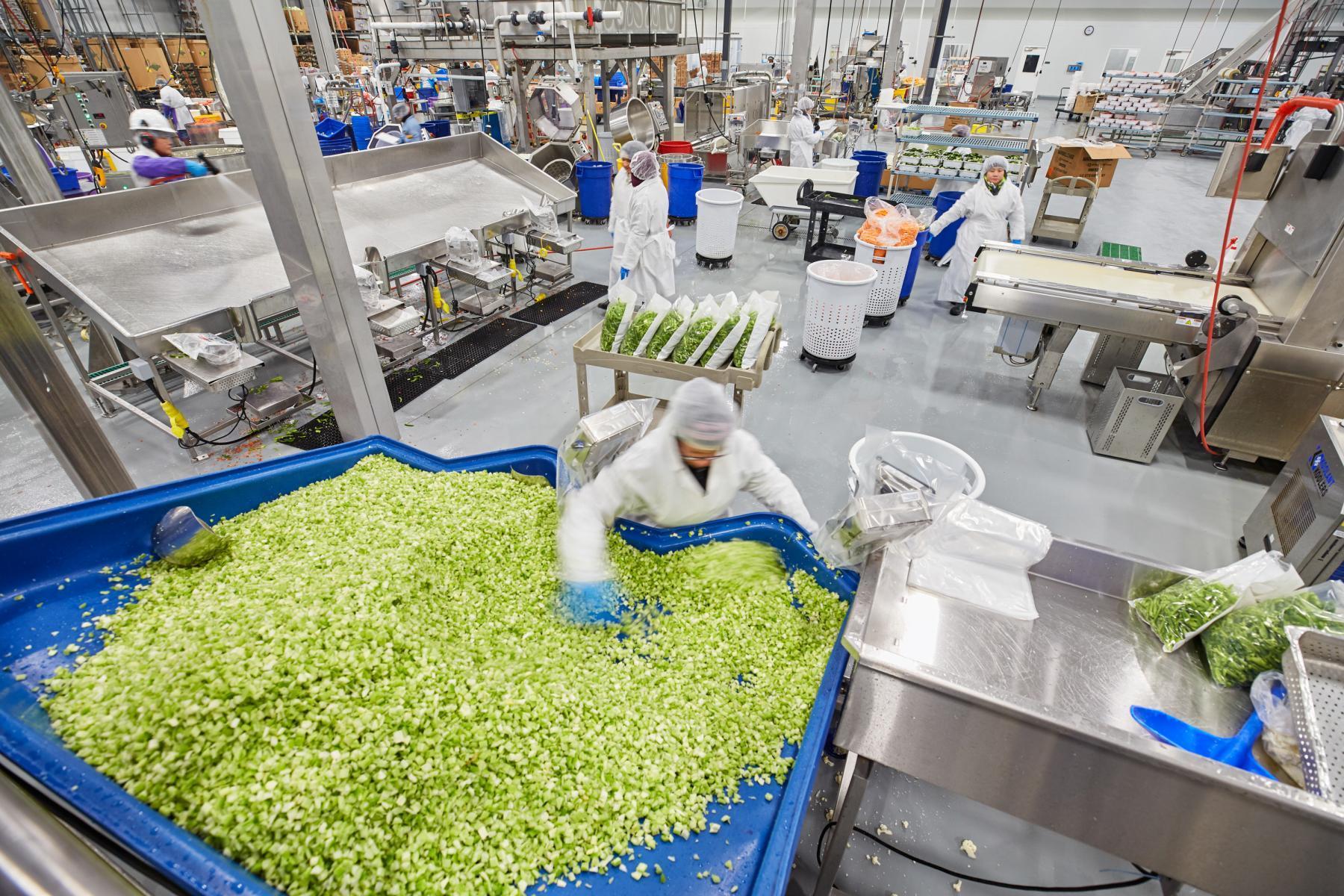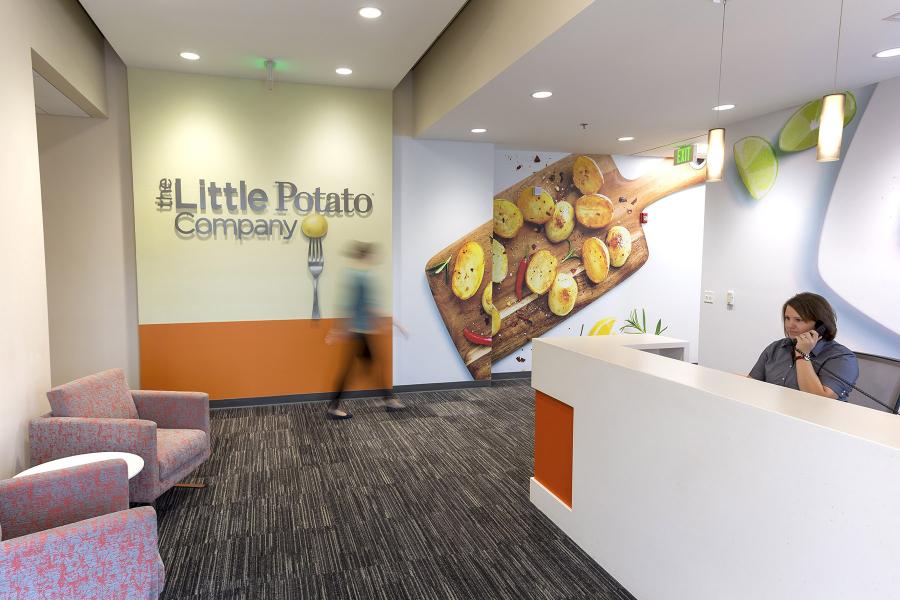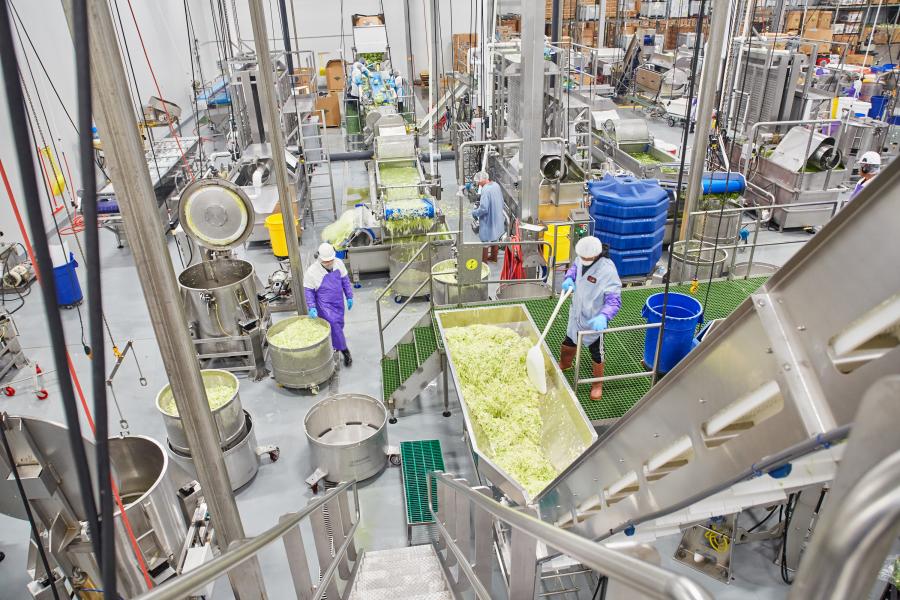Why Preplanning is Key to a Successful Food & Beverage Project

The French fries ordered at the drive-through. The cheddar used to make a grilled cheese sandwich. The bottles of soda that line grocery store shelves.
To manufacture and deliver such favorite foods and drinks to consumers, food and beverage facilities need to check all of the boxes: Safety regulations. Workflow efficiencies. Production improvement.
Preplanning is a critical component of our food and beverage team’s process. It serves as an analysis to understand the goal, the process and how best to make that process work and receive the best return on investment for our clients.
And it is also our food and beverage team’s secret ingredient to success.
Yes, preplanning is important in every type of project. But in the food and beverage industry specifically, our team understands that the building itself is secondary. When a company decides to build or remodel a food and beverage facility, you often do so with the intention of improving production. Our team knows that it is vital to understand a client’s production process—and whether it will be successful—prior to working on the design and build of a facility.
So what do we believe makes for a successful preplanning process?
Participation by all key players, including our experts in real estate, process engineering, process building, mechanical engineering, design, as well as robust project management teams, procurement teams and execution teams.
We spoke with our Food & Beverage team to pull back the curtain on our preplanning process and identify what steps we take to support the success of projects while saving you time and money.
1. Vet the project. Once a concept is developed, it is important to vet the concept with all stakeholders and confirm the project has application, advantage and return on investment (ROI). We need to understand what kind of advantage this project will create.
The biggest tool in our arsenal to determine these critical factors is asking the right questions, including:
- What is the ROI? Is it cost effective?
- What is the building and why are you making these changes specifically?
- What’s the impact to you as a company?
- What’s the impact to the bottom line and employee structure?
As a food and beverage company, having a comprehensive understanding of the project (defined by the answers to these questions) early on can help you paint a realistic picture of your goals and understand the impact before deciding to put a shovel in the ground. That’s where our team can offer support from the get-go: analyzing the details and helping put together a package for executive leadership so you can present the project in the best light and make sure the project sets the right expectations.
On the flip side, what happens if we don’t preplan and ask the right questions? Projects get cancelled. Sure, the project can sound great, but if we run an analysis and discover the ROI is poor, it’s not worth taking the process further, wasting time and money.
Similarly, if the ROI fits company requirements, but then we realize the necessary equipment won’t fit in the building and requires a costly addition, this will also change the course of a project. Our team can assist in pricing the building to help determine the best decision from a preplanning approach.
2. Determine who will support the project. When moving forward with a project, you have two options: hire a team internally or partner with an external company. In hiring your own team, you need to ensure team members jointly understand the food and beverage side of how the plant operates, as well as the facility side of the process and what will work best to design and construct your facility.
Your second option is to hire an external company who can do the heavy lifting for you and meet you where you are, providing a team of experts to examine all facets of the project—including the real estate component.
Not many groups offer full-service turnkey from real estate all the way to technical execution. Because we offer a complete team under one roof, our process is streamlined and creates a smoother communication flow with less hurdles for clients to navigate, and in turn, creates faster speed to market. Our collective insight allows everyone to be present at the table, providing each client with a one-stop shop approach. From the start to the end of the project, our team is embedded into the overall project team. In collaboration, we partner to identify what is needed to make the project happen and gain project approval.
3. Collaborate to secure necessary capital. Having a team to support you on securing the necessary capital serves as a helpful benefit to successfully get your project off the ground. For example, when Lamb Weston wanted to expand their french fry production output, their process engineering team and our team worked together to put together an official capital request. We also collaborated to create presentational material to vet out the project and ensure the cost would make the ROI work and that the project would yield what was expected.
4. Understand the site and equipment. Projects evolve, which is why it is important to gain a comprehensive understanding of the site in the beginning stages, including:
- Is it an existing facility?
- A new facility?
- What are the tenant and lease agreements?
You need to know where you are putting a project and what type of building is needed. Otherwise, you risk playing a guessing game then can end up with redesign efforts or incorrect sizing, which adds time and cost.
Harnessing the power of our real estate management team and Ryan Building Services team can help streamline the process from the get-go, allowing you to visualize an accurate picture of facility needs. Once our real estate team is engaged, the next most important group is the process design team. Because there are numerous equipment components involved, each piece of equipment must get installed in a certain order and configuration. Until you understand that configuration and that general arrangement, you cannot begin design. It is imperative to design a building that fits around the process.
5. Prioritize safety regulations. Food & beverage companies are strictly governed by agencies that monitor regulations and processes to maintain the safety and quality of products for humans and animals to consume. Safety is prioritized upfront to avoid causing unintentional harm or illness to consumers, therefore, we must prioritize the equipment layout and equipment size when considering design factors to maintain safety standards.
As part of this process, our A+E team can look at this process from a strategic lens. For example, our team can critically think, “How can we meet the safety process requirements ensure this food item is safe to consume?” Along with the food item itself, the building environment needs to be safe, as well, which often means the incorporation of wash-down and hygiene areas incorporated into the design.
To do so, we can collaborate with process engineers to create a plan. Next, our construction team can come in and say, “We understand how you are implementing safety with your process; now let’s build the building safely. Let’s utilize food safe design to help prevent unnecessary contamination.” Together, the team can identify all critical components of safety, making decisions before acting on those decisions to ensure everyone is on the same page to achieve an effective design.
Within each food and beverage facility, preplanning is a game changer. The planning of what you want to do and how much you want to spend—then getting the plan in on paper— helps support a streamlined process and accomplish cost savings.
As part of the preplanning process, our team can serve as a one-stop shop for clients to funnel all questions and receive answers, making response and design times more efficient and effective.
With intentional preplanning and collaboration with a team of experts that considers every angle of the process, you can help set yourself up for success and save money and time.
CONNECT WITH US
Reach out to Scott to learn how we can help simplify your next food & beverage manufacturing and processing project.
Scott Baesler
Director of Process Engineering, Food & Beverage
Florida - Tampa 859-285-4422 scott.baesler@ryancompanies.com- Email: ryan.pr@ryancompanies.com
- Phone: 612-492-4160

